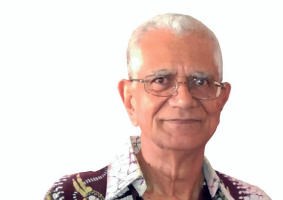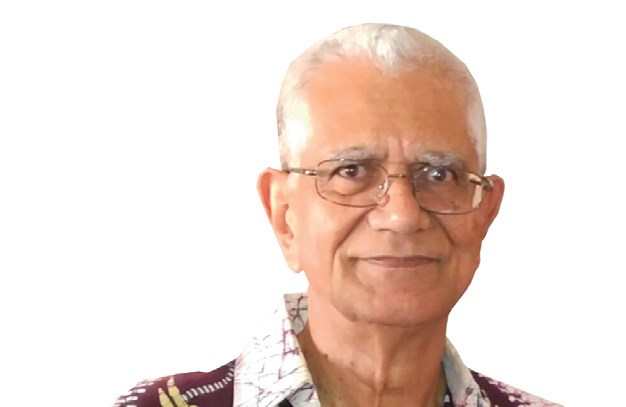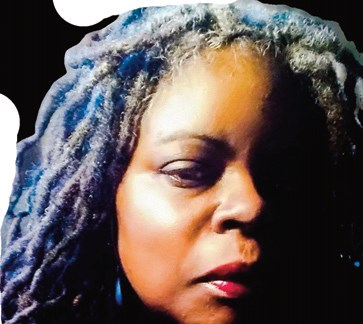Haiti has had 45 leaders since independence in 1804.
Twenty-three were overthrown, two were assassinated, one committed suicide and another was executed. Seven died in office and fewer than a dozen completed a full and uninterrupted term as interim leader or elected president, The Los Angeles Times’ Ann M. Simmons reported in 2016.
It was not until 1991, 187 years later, that Jean-Baptiste Aristide became the first democratically elected president. He was twice ousted from office.
Other leaders emerged, among them Jovenel Moise, assassinated in his home before dawn on July 7 in “a well-orchestrated commando attack,” the ambassador to Washington, Bocchit Edmond, told The Guardian. “It’s an attack on our democracy.”
However, Amy Wilentz, a Guggenheim fellow and a Literary Journalism teacher at the University of California at Irvine, was warning in the Nation in February that Moise was becoming a dictator under whom “the cost of living has risen, poverty has hardened, unemployment has grown … Kidnappings are a way of life, a business for gangs, who kidnap and kill with impunity, as if, perhaps, they were part of an unstated government policy. They are heavily armed and highly organized.”
Protests mounted for Moise to resign. Instead he dissolved the National Assembly, ruled by decree and jailed many opponents.
BIDEN BACKING
Still, the Biden administration announced that it would continue U.S. support for Moise’s staying in office for another year, as did the United Nations and the Organization of American States. But, Wilentz noted, “These are the same players who have looked on for the last decade in Haiti, approving grossly irregular elections and rubber-stamping their winners.”
The situation turned ridiculous when, in February, opponents named a supreme judge, Joseph Mecene Jean-Louis, whom Moise had fired, as interim president. Carl-Heins Charles, a lawyer, was separately sworn in also as president. So, Haiti had three “presidents” at the same time.
Meanwhile, the population of more than 11 million live in grinding poverty in one of the “poorest countries in the world,” the World Bank reported in April. The poverty rate is about 60 percent and the poorest 20 percent, mostly agricultural people living mainly in rural areas, own less than 2 percent of the wealth.
Blame for the unending political chaos lies squarely with Haiti’s leaders but the protracted economic problems are partly due to the French.
NAPOLEON “INDEMNITY”
Napoleon Bonaparte twice failed to crush the revolution and France did not recognize Haiti’s independence until 1825, after coercing it to agree to pay an “indemnity” equivalent to $21 billion today.
France finally canceled the ransom on Jan. 17, 2010, around the time an earthquake killed between 92,000 and 300,000 Haitians, severely injured tens of thousands more, destroyed 250,000 homes, leaving 1.3 million homeless, and wiped out 30,000 businesses. By then, Haiti had paid the equivalent of $20 billion.
Haitians trying to flee are met with the same sustained hostility that followed the revolution. The Dominican Republic, which shares the island of Hispaniola with Haiti, is implacably hostile, recently depriving some 200,000 of them, including children born in the country, of all rights, and deporting thousands. The military massacred up to 30,000 in 1937.
Thousands have fled to the Bahamas, mostly to Abaco, where they are equally unwelcome. Their plight was seen when Dorian, a Category 5 hurricane, struck in December 2019.
“S—HOLE COUNTRY”
“The people who lived in Abaco’sshantytowns did not evacuate the island before the storm, often because they could not,” Sonia Shah reported in Nation. “Thousands of them died as a result, according to estimates by epidemiologist Vincent Degennaro. The traumatized survivors were barred by the government from rebuilding and were targeted by stepped-up immigration raids. Many were deported to Haiti. Others, deprived of shelter and aid, went into hiding on the island.”
The United States, where 500 free Haitians fought with the colonists against the British in the Independence war, also rejects the refugees, including deporting those found at sea, a policy which, Shah noted, the Supreme Court upheld.
IT IS CURIOUS, THEREFORE, THAT HAITI IS NOW APPEALING FOR MILITARY ASSISTANCE FROM THE U.S. … CARICOM WOULD BE A BETTER SOURCE.
The U.S. also signed an agreement with the Bahamas in 2004 allowing it to interdict refugees found in Bahamian waters.
Some who make it to the U.S. have been granted temporary residence status but former President Donald Trump, who called Haiti a “shit hole,” withdrew that concession, though the Biden administration has reinstated it. Over time, some two million Haitians have come to call the U.S. home.
CARICOM EXPERTISE
Also, the U.S. backed the ruthless Duvalier family who ruled the country with an iron fist for 29 years. That was not surprising. The U.S. invaded Haiti 100 years ago to protect American property and investments.
The United Nations has tried to help, especially with curbing gang violence. But a mission to restore peace resulted in peacekeepers’ contaminating the water with cholera, killing 5,000 Haitians. Some peacekeepers bartered goods for sex with boys and girls; one girl said she had sex with 50 of them.
It is curious, therefore, that Haiti is now appealing for military assistance from the U.S. The Caribbean Community (CARICOM), of which Haiti is a member, would be a better source.
A CARICOM peacekeeping force could help restore order, take on the gangs and pave the way for elections. Also, CARICOM has the expertise to help strengthen and expand democratic institutions.
Haiti needs much more than a replacement for Moise if it is to finally start realizing the promise of the revolution. It is not where the world’s first successful slave rebellion occurred.
BEFORE IN GUYANA
More than 20 years before JeanJacques Dessalines led his uprising, another slave, Cuffy, staged a revolt against Dutch colonists in Berbice, part of what is now Guyana, and proclaimed an independent state which the Dutch governor recognized.
The Dutch suppressed Cuffy’s revolt after 13 months but Dessalines’ republic has endured. Tyler Stovall in his book “White Freedom” noted that “many African Americans cheered the overthrow of slavery” in Haiti but “white” people “viewed it as an example of anarchic violence and mob rule, not a struggle for freedom.”
That is probably the sentiment still but it was a “struggle for freedom” and it did succeed. That may be why aid that would give meaning to that freedom has not really been forthcoming.
It serves a purpose for the country to be impoverished and destabilized.













No Comment